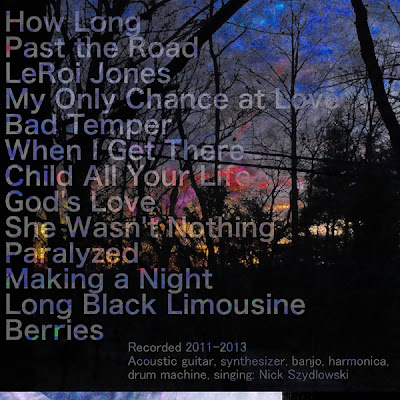A friend once asked me a question that boiled down to: is it OK for rich white people to listen to Robert Johnson. I think she had a specific picture in mind, a wealthy young stockbroker, maybe a little like the main character in American Psycho, but instead of Whitney Houston and Huey Lewis, he puts on “Hell Hound on My Trail”.
This kind of question begs another question – if it’s not OK, then what is it? Is it problematic, in the critical theory sense? And if it is, what is the moral weight of the problematic – is being problematic a major sin or a minor infraction? Is it inherently racist, somehow, to enjoy Robert Johnson? Are there racist and non-racist ways to hear him, as well as a whole spectrum of kind-of-racist but kind-of-not-racist responses in between?
How important is Robert Johnson, as an individual musician, in the history of American popular music?
Critical. Indispensible.
If he hadn’t of done it somebody else would have?
Maybe, but I don’t actually believe it.
Just a placeholder, an archetype, a mythic figure, a story somebody told to make sense of the dozens (hundreds, thousands?) of similar musicians roaming the delta swamps? An arbitrary obsession of white, mostly British rock musicians and their legions of boomer fans.
Maybe for some people. But I think there is something else there. Not primarily in the guitar playing or singing, though those are certainly impressive and often imitated, but in the songwriting.
Robert Johnson’s narrative approach, his logic, his use of non-sequitor, his ability to take someone else’s verse and place it in a new setting where it resonated both more deeply and more strangely, to make the generic personal again, feels original to me. In my own imagined history of the world, Robert Johnson’s records are a place where the rules of narrative, of the kinds of sense a folk song, and eventually a rock song, could make, changed. The rules changed, but somehow no one heard about the change until decades later, when songwriters took advantage. Bob Dylan, of course, but others too.
One quality Johnson and Dylan share is the ability to move unpredictably between lyrical and narrative modes, to use narrative forms for lyrical purposes and vice versa. The broken mirror quality of the language is one of the modernist elements of both of their work.
Can Robert Johnson be the source of Dylan’s modernism? Because I think there is a narrative out there, stated or assumed, that the techniques of modernism enter the songwriting tradition through figures like Dylan and Leonard Cohen, songwriters with an awareness of or connection to modernist or beat poets. But what if there is a strain of the songwriting tradition, of the blues tradition, that already includes many of the same techniques and ideas? Do we like that story any better?
It makes me thing of the role of African masks in Picasso’s painting. It isn’t only a question of appropriating shapes and images; shapes and images are capable of carrying philosophical concepts from one person to another, often covertly, as if they were smuggling them across an international border. Shapes and ideas, sounds and stories, have their own agenda. Aside from whatever moral or ethical questions may or many not surround cultural appropriation, there are practical problems, akin to playing with fire or cooking with unknown and poorly understood ingredients. And yet, appropriation is one of the core techniques of modernism. It is the way he appropriates and re-contextualizes existing songs that makes Johnson’s work singular.
The Johnson myth has something to say here. In the myth, he never plays the diligent apprentice, never transcribes solos or sits at the feet of the father. I’ve seen two versions: he either learns a few chords, or more likely an open tuning, and then woodsheds for six months, emerging fully formed doing things no one else can, or he sells his soul to the devil and gets the same results.
The part of the myth that rings true is this: Johnson’s music represents a leap forward, an act of individual genius. His innovation is not inevitable. He made it happen, and without him it would have turned out differently.
If you hear this when you listen and appreciate Robert Johnson as a critical figure in the history of American popular music, I don’t see how anyone could begrudge you the right to listen to shitty, clipped, hissing recordings of him playing guitar on your audiophile stereo while you take off your Armani suit.*
*Unless the objections are purely economic, in which case I don’t know how to help you. There’s no changing the fact that he died broke, and it seems that his estate has been able to collect royalties on sales of his records after his death.



